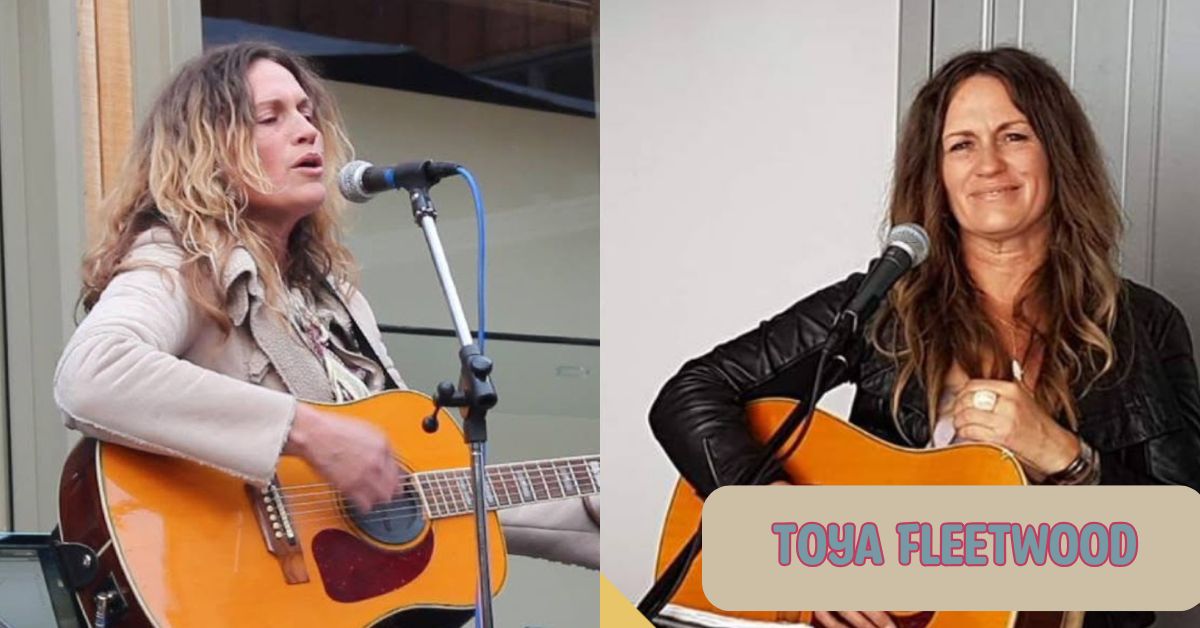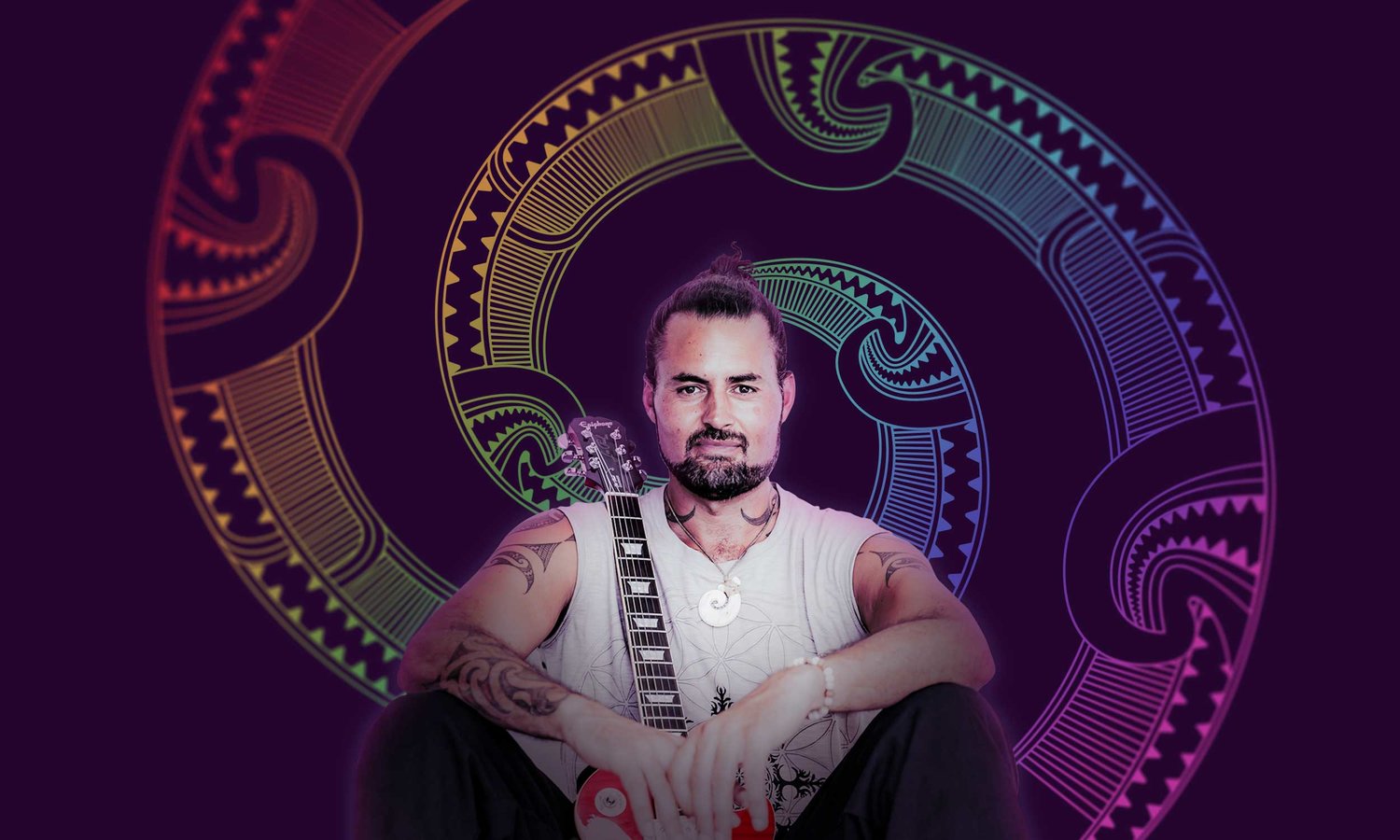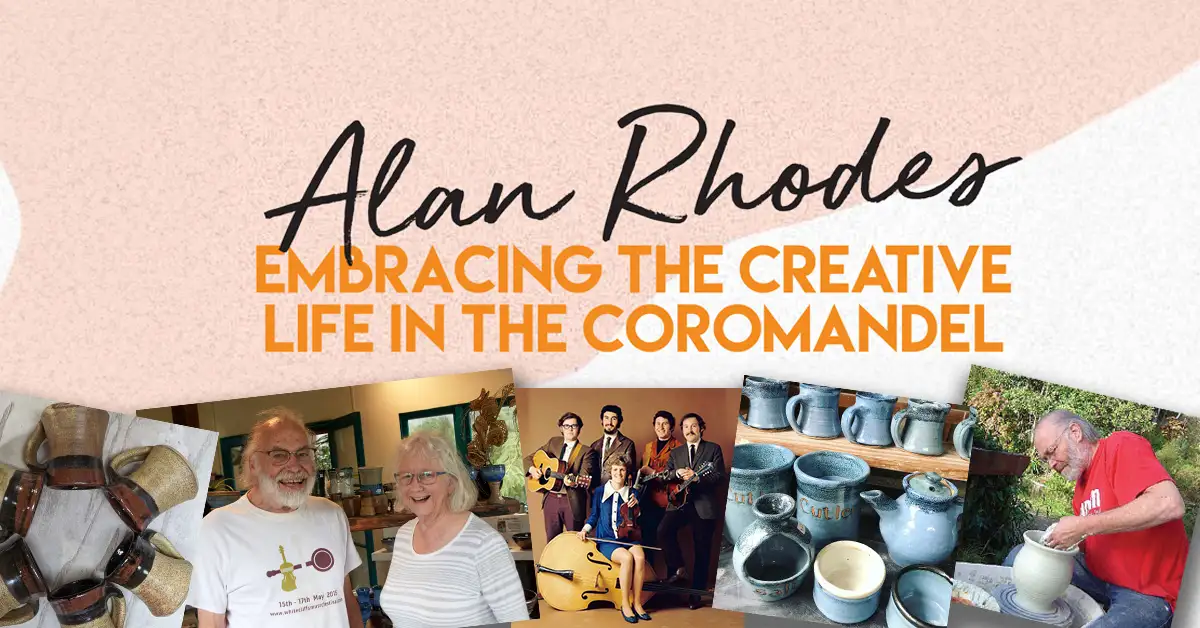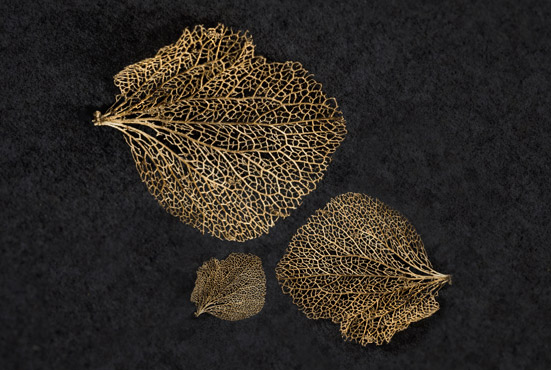A life’s journey unfolds before your eyes as a Kapa Haka stalwart shares her tale of bloodlines and connections
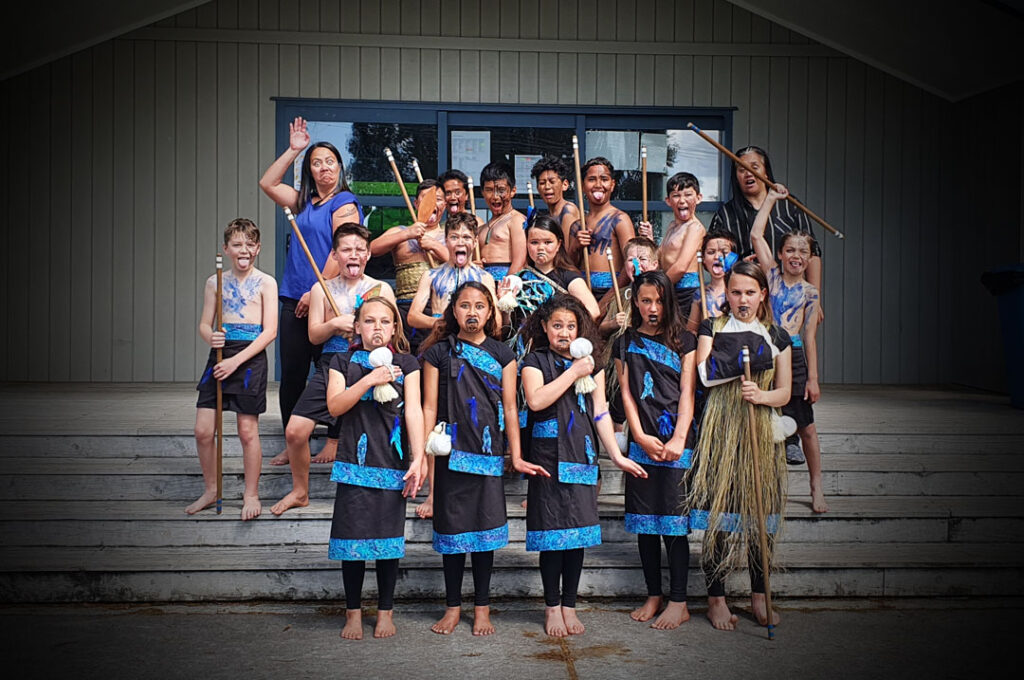
When I think of ‘The Arts’ my mind wanders to an overflow of vibrant colours and textures, free-flowing movement with drama and excitement. I think of melodic sounds, tantalizing the ear drums with rhythm and vibration. I think of wānanga (discussion) and thought provocation. I think of my whānau (family) and my place in this world. ‘The Arts’ – an expression of creativity and storytelling, and as a means of expressing one’s culture and identity.
I fell in love with Kapa Haka or Māori performing arts at 5 years of age, after my whānau had moved back to our hometown in the central north island of Raetihi where I was enrolled in the bi-lingual class at the local kura (school). We would compete in interschool Kapa Haka and regional festivals each year. My school days were filled with hours of practicing, learning new songs and choreography. Day after day we would sing the same songs over and over, songs of our local history, songs of love and loss, songs of bloodlines and connections between whānau. Little did I know that what was actually taking place was the transmission or download of mātauranga (knowledge).

In each song there was such rich history and multiple layers of meaning. At 5 years old I was enriched to know so much about my culture, who I was and where I had come from through these performing arts. I loved when I was on stage, there was something truly powerful in this ‘self-knowing’ and the utmost confidence that comes with it. The resolute beauty you feel when adorned in your cultural attire: with piupiu (flax skirt) swaying from side to side, gorgeous pounamu pendants hanging from your neck and moko kauae (chin tattoo) etched on with temporary paint; a glimpse into what I would look like when I am older. The discipline you learn and apply as an individual, but also as a kapa (group), standing to attention, not breaking rank, awaiting the call from your kaea (leader) to give it 1000% and ‘haka your heart out’, leaving nothing left in the tank. For this was war. A beautiful war, a war of performing arts.
I consider myself one of the lucky ones. I got to immerse myself in the arts and cement my identity quite quickly in life. Some tamariki (children) never get the chance and they can get lost along the way. I got to perform and stay in this environment for 8 years until my whānau moved overseas, where my progression of culture and identity was shelved whilst living in a foreign land. And yet, void of my native tongue and practices, I soon learnt to use the skills that Kapa Haka had taught me to get by: discipline, public speaking, performing, conveying myself through song, dance and literature. I was armed with the life skills to navigate through the toughest times. The power of art.I consider myself one of the lucky ones. I got to immerse myself in the arts and cement my identity quite quickly in life. Some tamariki (children) never get the chance and they can get lost along the way.
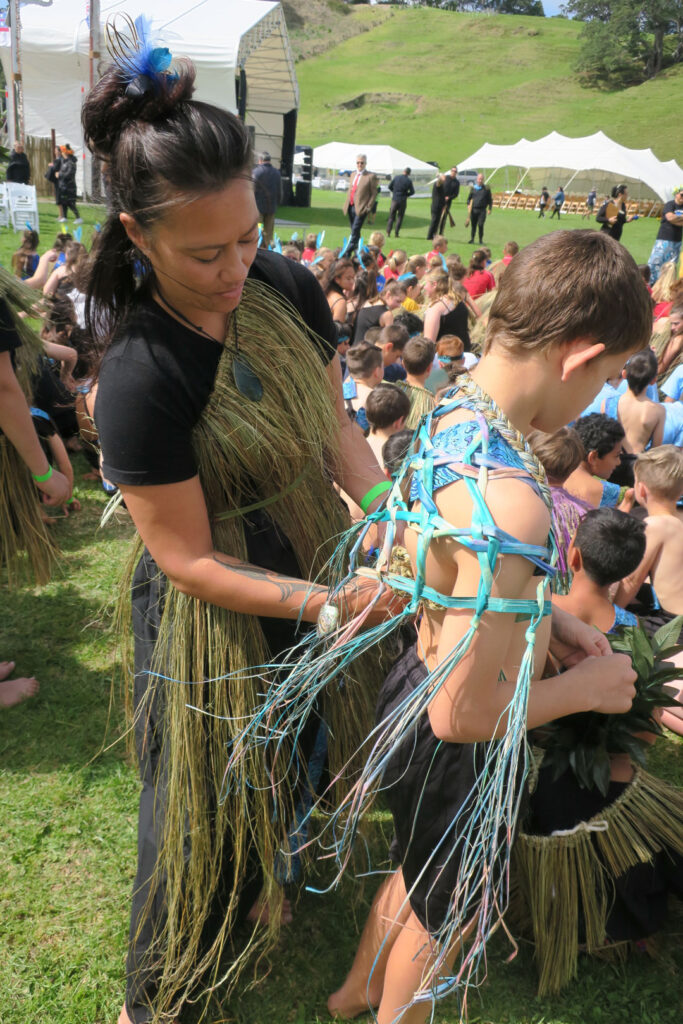
I got to perform and stay in this environment for 8 years until my whānau moved overseas, where my progression of culture and identity was shelved whilst living in a foreign land. And yet, void of my native tongue and practices, I soon learnt to use the skills that Kapa Haka had taught me to get by: discipline, public speaking, performing, conveying myself through song, dance and literature. I was armed with the life skills to navigate through the toughest times. The power of art.
Fast forward a few years and I still hold the same love for Kapa Haka for it gave me so much and opened so many doors. I am still connected with a group of friends who meet up weekly to run through various waiata (songs), keeping the transmission of knowledge flowing. But now it is different. This time I am privileged to watch my own tamariki grow and learn all about who they are as young Māori, to watch their first Kapa Haka festival – held in Te Aroha mid-November 2022! I felt elation as a parent watching them on stage, with pride beaming from their faces as they expressed themselves authentically in an environment made especially for them. I now understand why my dad would cry like a baby whilst watching me on stage … I get it now, Dad.
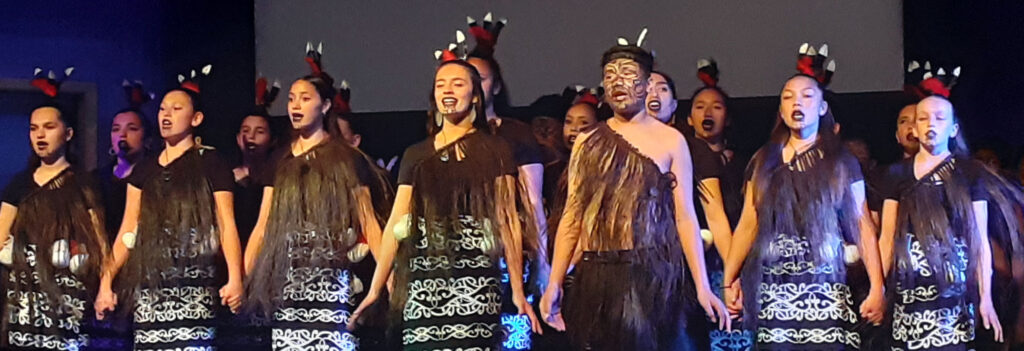
In the world we currently live in, with people disconnected from their whānau, separated from their culture, struggling with identity issues and subsequent mental health problems, how would the arts not matter?
I love what they are doing in the Department of Corrections with their Hōkai Rangi strategy, a strategy that uses Māori culture to rehabilitate Māori prisoners. Performing arts groups from nine different prisons around the country will compete against each other as a part of this initiative. Not only will it lift their spirits but the prisoners will gain NZQA credits that will count toward their educational attainment. It also provides them an insight into better pathways, creating opportunities of growth, connection and reintegration into society when they leave prison.
That’s the power of art when it is viewed holistically. We can utilize this amazing tool to inspire our tamariki, heal trauma, bring together our communities and even to unite our national identity! Let art heal our world, one song, one performance and one haka at a time.
Watch this space e te whānau, we could very well be working on something special for our community here in Mercury Bay.
– Words by Billie Hunter, Big believer in Māori Performing Arts



